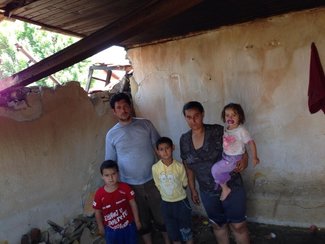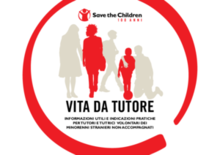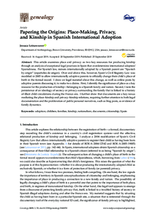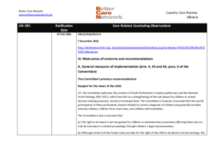

Displaying 171 - 180 of 544
This manual (written in Italian) seeks to ensure better protection and respect for the rights of migrant children and strengthen the guardianship system by providing key information and guidance for guardians and tutors of unaccompanied foreign minors.
This study had three goals: (1) To analyze the prevalence of dating violence in adolescents under residential care settings according to sex and age; (2) to explore the relationships between victimization and perpetration in adolescents’ dating violence, sexist attitudes and clinical variables; and (3) to identify variables associated to adolescents’ dating violence (victimization and perpetration).
The objective of this study was to evaluate the health status and anthropometrical development of adopted children from Ethiopia living in southern Spain.
The objective of this study was to determine if Spanish foster care children and Spanish non-foster children differ on sluggish cognitive tempo (SCT), ADHD-inattention (IN), ADHD-hyperactivity/impulsivity (HI), oppositional defiant disorder (ODD), limited prosocial emotions (LPE), anxiety, depression, social and academic impairment measures and if the duration of foster care predicts a reduction in symptom and impairment differences between foster and non-foster care children.
This article examines place and privacy as two key resources for producing kinship through an analysis of exceptional legal practices in Spain that overdetermine international adoptees’ Spanishness.
This country care review includes the Concluding Observations of the Committee on the Rights of the Child and the Committee on the Rights of Persons with Disabilities. The Committees' recommendations on the issue of Family Environment and Alternative Care, and other care relevant issues, are highlighted.
The UN Special Rapporteur on the sale and sexual exploitation of children, including child prostitution, child pornography and other child sexual abuse material, in partnership with the UNICEF Office of Research-Innocenti, will hold a two-day expert meeting in Florence to reflect on the current state of play of this problem, its root causes and new manifestations, as well as the relevance and the impact of interventions to eliminate the sale and sexual exploitation of children.
This country care review includes the Concluding Observations for the Committee on the Rights of the Child and the Committee on the Rights of Persons with Disabilities adopted as part of the Committees' examinations of Greece’s reports, as well as other care-related concluding observations, ratification dates, and links to the Universal Periodic Review and Hague Intercountry Adoption Country Profile.
This study sought to analyze the executive functions of a sample of 43 Spanish foster children aged between five and nine years (M = 7.51, SD = 1.29), using a caregiver-reported questionnaire.
This study sought to analyze the executive functions of a sample of 43 Spanish foster children aged between five and nine years (M = 7.51, SD = 1.29), using a caregiver-reported questionnaire.





